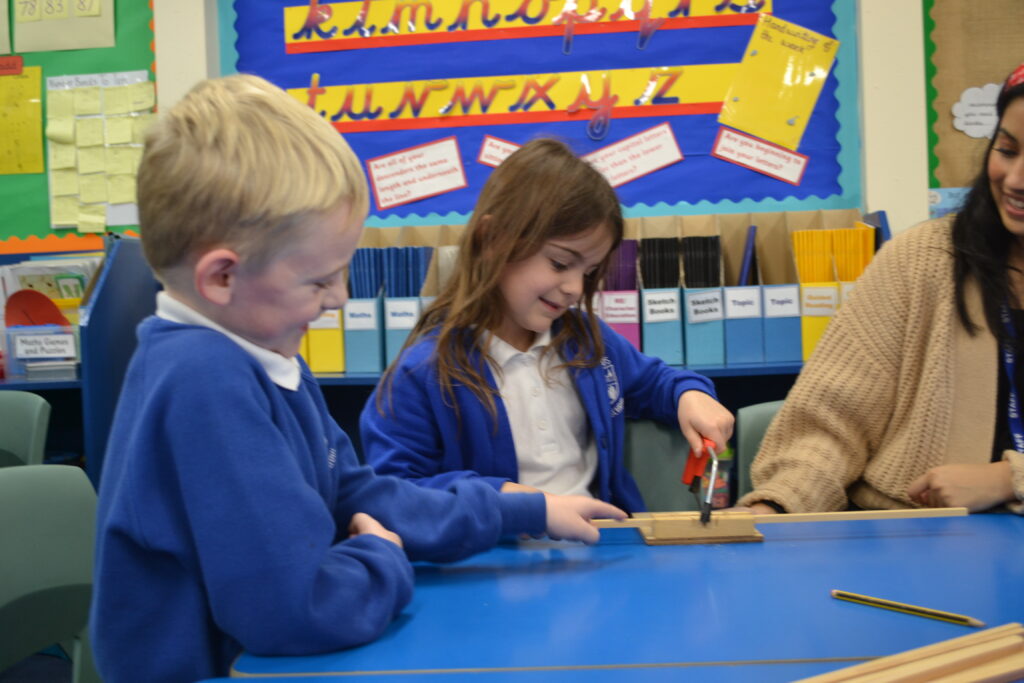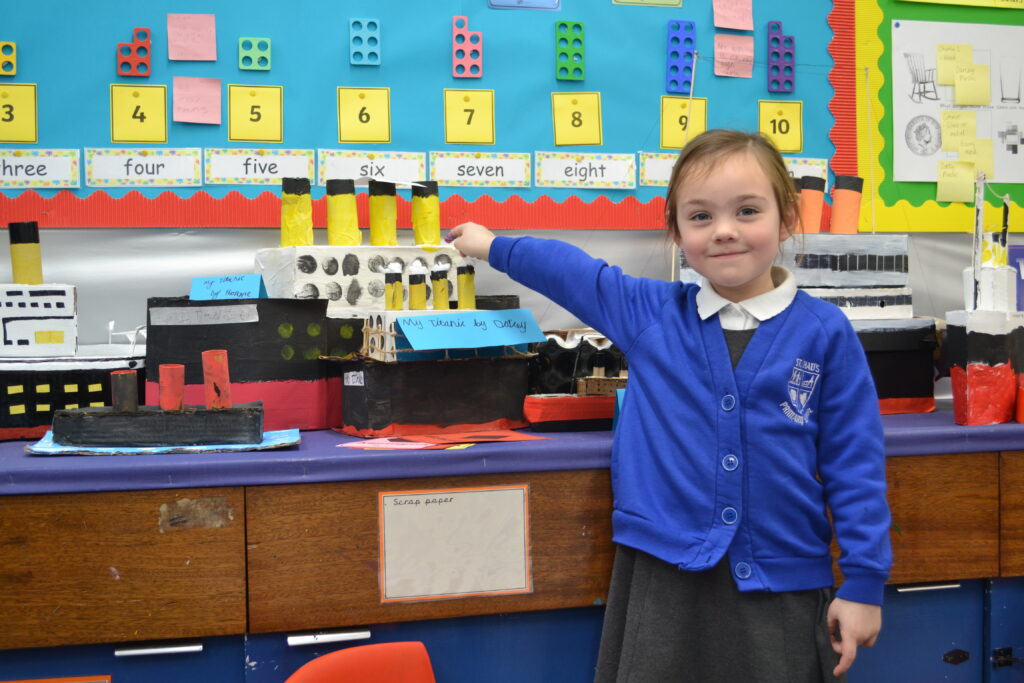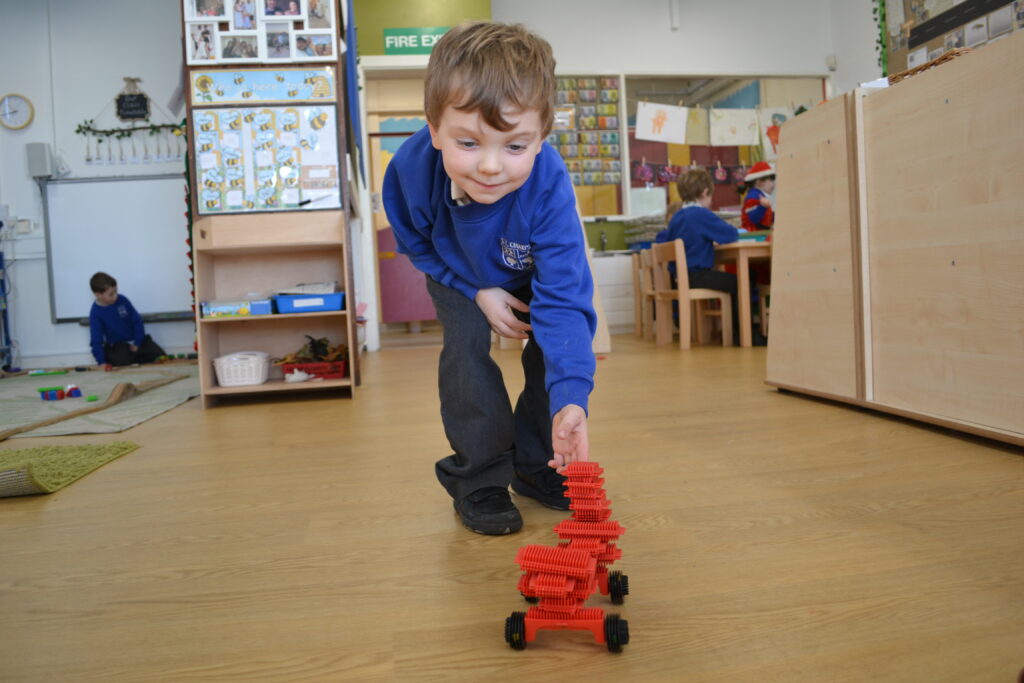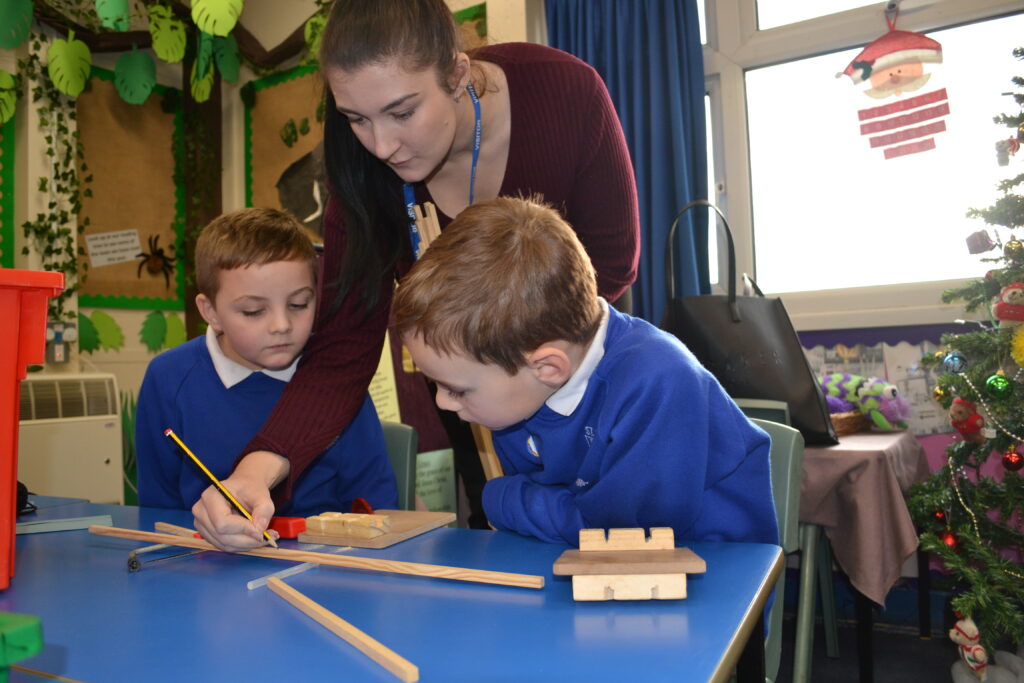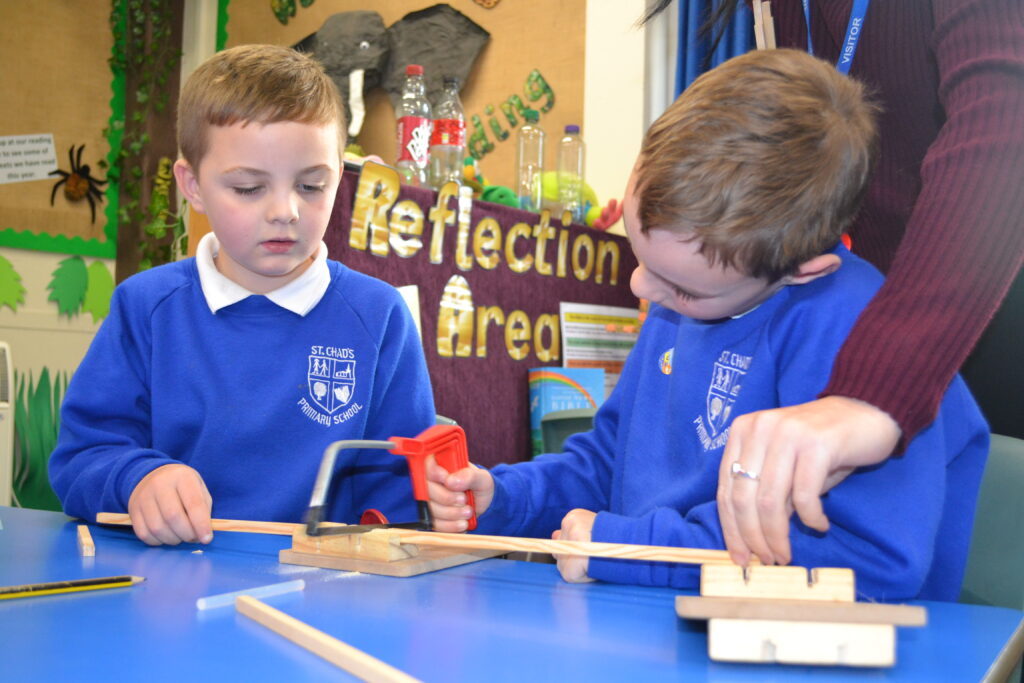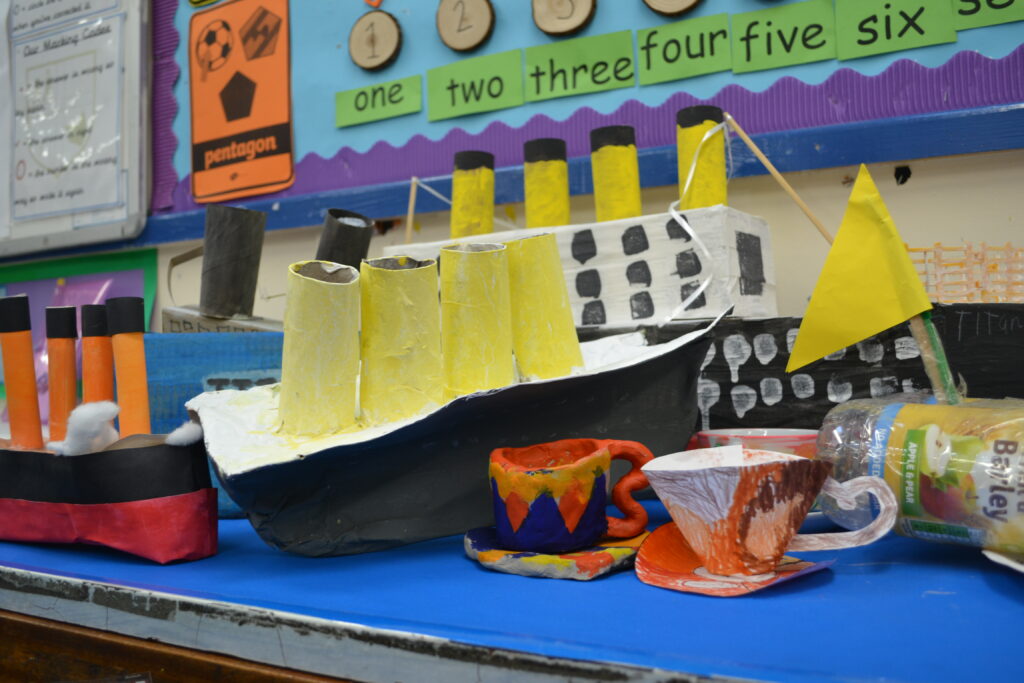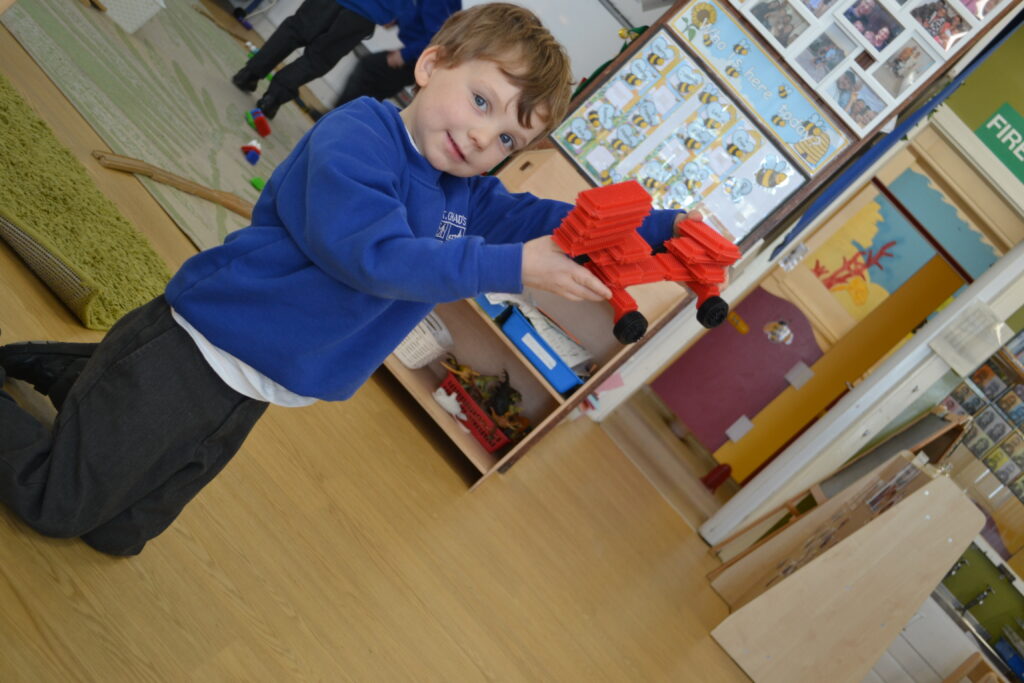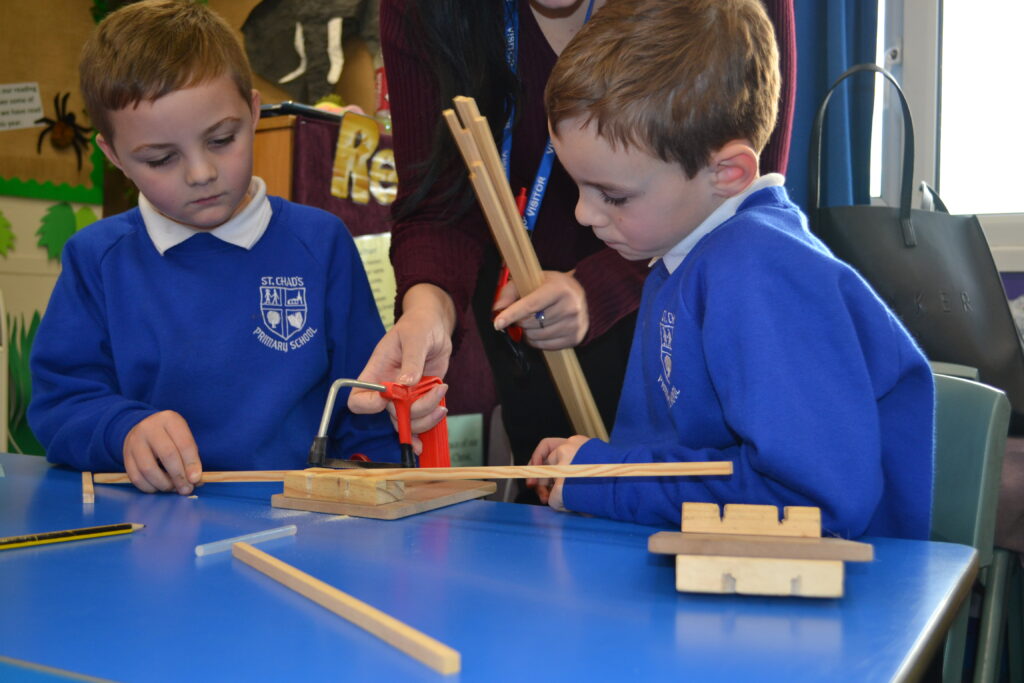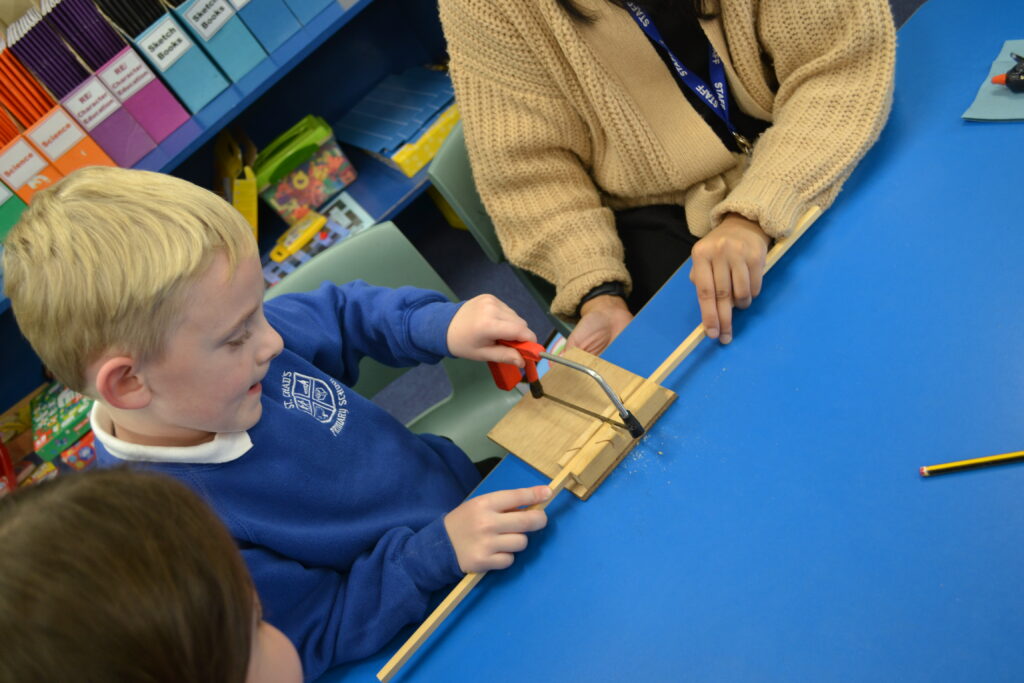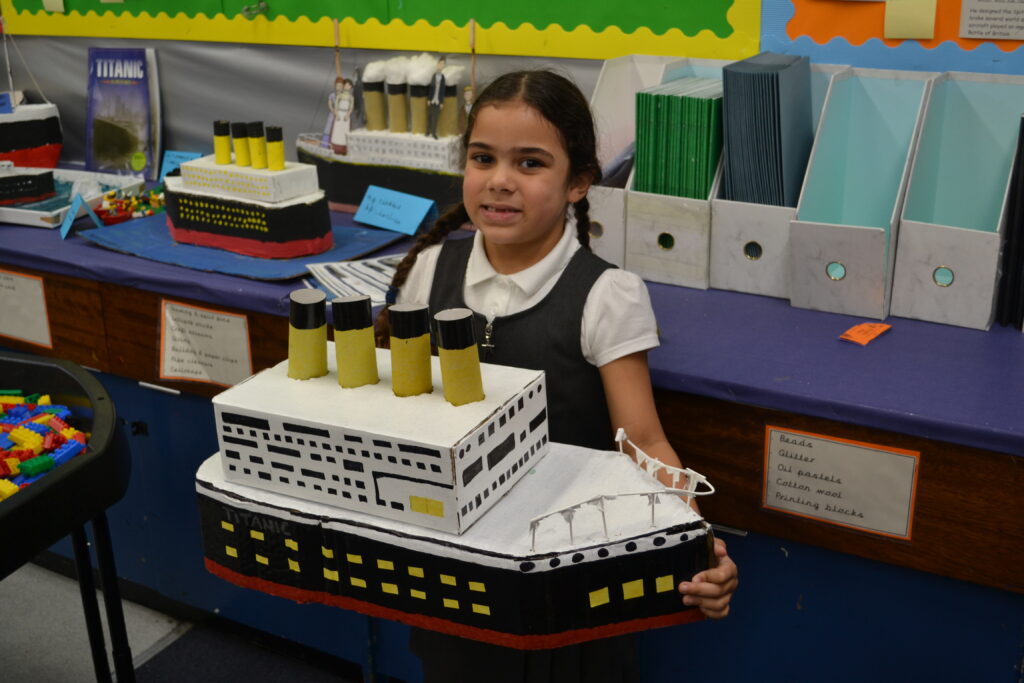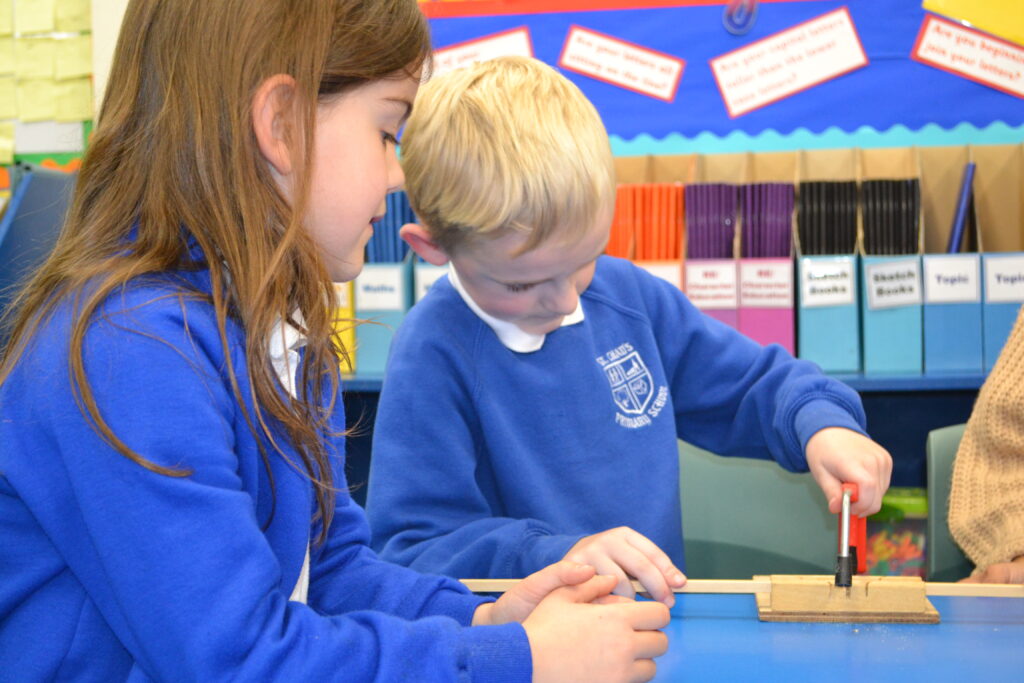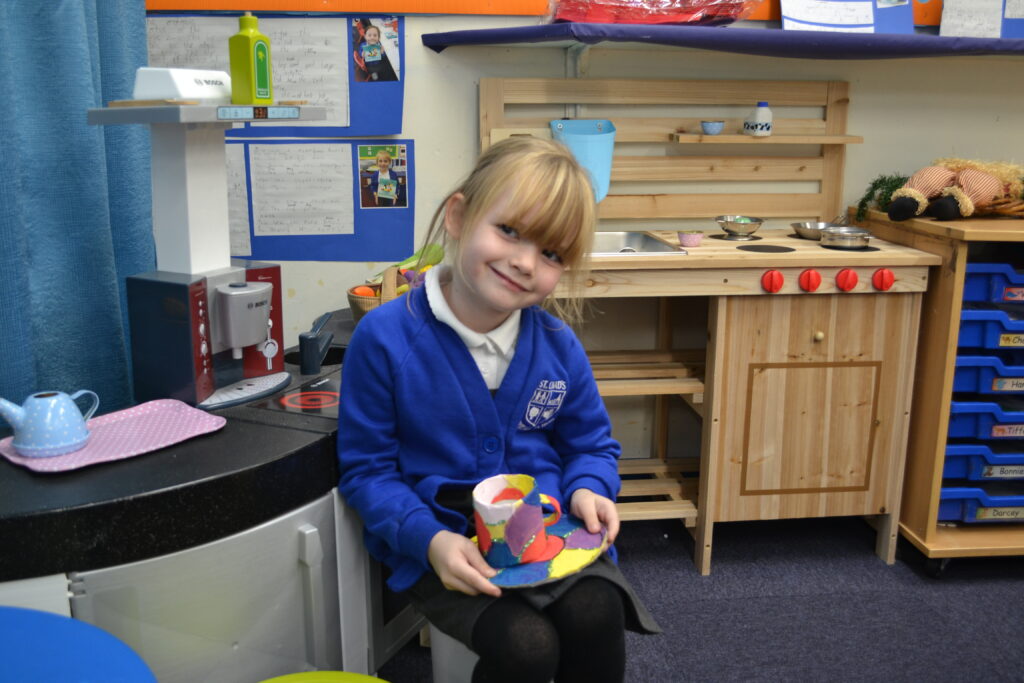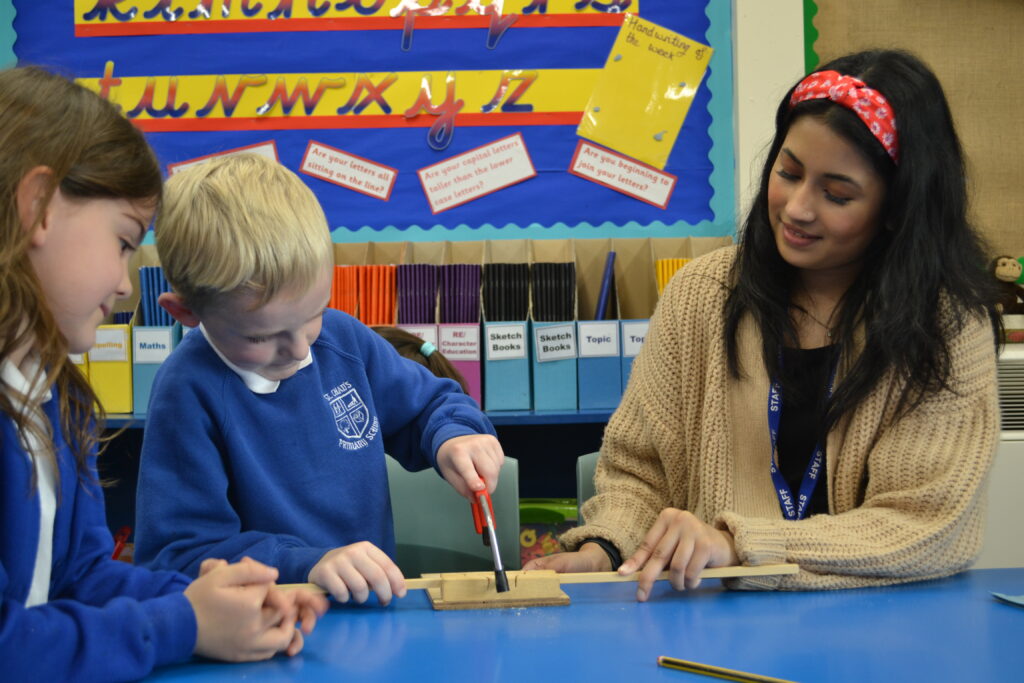Design & Technology
Intent
At St Chad’s, we want all of our children to think as designers, embrace the invaluable role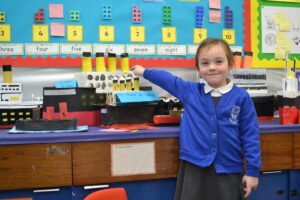 that design and technology has in our world, and develop a believe that they can be a vital part of its progress.
that design and technology has in our world, and develop a believe that they can be a vital part of its progress.
Our aim is to nurture children to take risks, to develop new innovative designs, to be creative thinkers and reflective learners.
We strive to develop our children’s understanding of the importance of researching other designers, setting a design criterion, establishing a clear function and purpose, embedding key skills and knowledge in technical areas and their confidence when evaluating their own and others finished products. We intend that Design and Technology will prepare our children to go on to have a career in Design and Technology should they wish to, and to make use of design and technology effectively in their everyday lives.
Our bespoke Design and Technology curriculum has been created by identifying the key skills, knowledge and vocabulary in the areas of design, making, evaluating and in the technical knowledge strands of materials and construction, mechanisms, textiles, electronics and food. Our curriculum develops children’s knowledge and practical skills by setting thought provoking problems for them to solve.
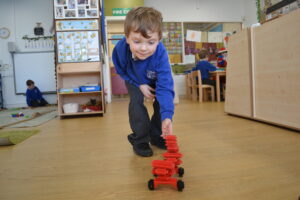 In the EYFS, we nurture children’s passion for design through exploring and developing their natural curiosity for design both inside and outside the classroom. From building bridges for the Gingerbread man to cross a river, to creating dinosaurs from paper plates and kitchen rolls, design is a highly valued aspect of our EYFS curriculum. We focus on fine motor skills such as using scissors and paintbrushes, developing accuracy and care when drawing, creating using a variety of materials, tools and techniques and experimenting with colour, design, texture, form and function. They are encouraged to share their creations, explaining the process they have used ultimately sparking a lifelong love of design.
In the EYFS, we nurture children’s passion for design through exploring and developing their natural curiosity for design both inside and outside the classroom. From building bridges for the Gingerbread man to cross a river, to creating dinosaurs from paper plates and kitchen rolls, design is a highly valued aspect of our EYFS curriculum. We focus on fine motor skills such as using scissors and paintbrushes, developing accuracy and care when drawing, creating using a variety of materials, tools and techniques and experimenting with colour, design, texture, form and function. They are encouraged to share their creations, explaining the process they have used ultimately sparking a lifelong love of design.
Throughout school, we operate a two-year cycle in each Key Stage, where skills are taught progressively, and where all of the strands of technical knowledge are allocated one half term of teaching time per cycle (except materials and construction which has a greater coverage). 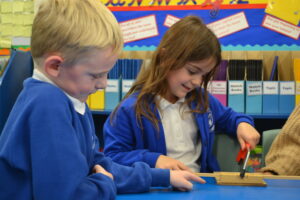 Each topic is designed to be relevant, motivating, engaging and is driven by a real and relevant problem to solve. With lessons being taught weekly, skills can be learnt, practised and developed to a deeper level over a sustained period of study. Where possible, children develop their understanding through researching, exploring and evaluating linked designers and their products, reflecting on the impact they have had, and using this knowledge to assist them in setting a design criterion. Local links are highly valued and explored where viable, with KS1 cooking the local delicacy of cheesy oatcakes and LKS2 designing a miner’s lamp for our local mining heroes, inspired by the Davy Lamp. Designing with a purpose, focuses the children on the function of their product and the importance of their design criteria in meeting the needs of the client. Children go on to practically make the product, whether individually or as part of a group, and we ensure that they are given time to test their ideas and adjust, therefore enabling them to improve the overall success. Evaluation of their designs and products, based on their criteria, encourages the children to become reflect thinkers, to develop their critical analysis skills and to become successful designers. Our projects also draw on disciplines such as mathematics, science, computing and art. For instance, in UKS2 children consider ratios in cooking and in LKS2 measurements when making a Greek sandal to fit their foot.
Each topic is designed to be relevant, motivating, engaging and is driven by a real and relevant problem to solve. With lessons being taught weekly, skills can be learnt, practised and developed to a deeper level over a sustained period of study. Where possible, children develop their understanding through researching, exploring and evaluating linked designers and their products, reflecting on the impact they have had, and using this knowledge to assist them in setting a design criterion. Local links are highly valued and explored where viable, with KS1 cooking the local delicacy of cheesy oatcakes and LKS2 designing a miner’s lamp for our local mining heroes, inspired by the Davy Lamp. Designing with a purpose, focuses the children on the function of their product and the importance of their design criteria in meeting the needs of the client. Children go on to practically make the product, whether individually or as part of a group, and we ensure that they are given time to test their ideas and adjust, therefore enabling them to improve the overall success. Evaluation of their designs and products, based on their criteria, encourages the children to become reflect thinkers, to develop their critical analysis skills and to become successful designers. Our projects also draw on disciplines such as mathematics, science, computing and art. For instance, in UKS2 children consider ratios in cooking and in LKS2 measurements when making a Greek sandal to fit their foot.
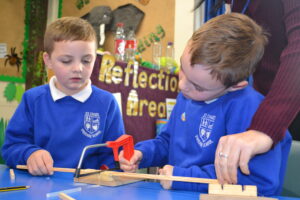 Our tailored assessment trackers focus on both the acquisition and depth of understanding of key Design and Technology skills. Assessment is carried out through a range of summative assessments which include: pupil conferences, book scrutiny, pupil practical tasks and the use of a Frayer Model at the end of each project to aid sticky learning (Year 1 complete this as a class discussion and from Year 2 upwards on an individual basis). Assessment then informs planning, identifying any gaps in knowledge or skills, ensuring that our children have every opportunity to develop as inquisitive designers and technologists.
Our tailored assessment trackers focus on both the acquisition and depth of understanding of key Design and Technology skills. Assessment is carried out through a range of summative assessments which include: pupil conferences, book scrutiny, pupil practical tasks and the use of a Frayer Model at the end of each project to aid sticky learning (Year 1 complete this as a class discussion and from Year 2 upwards on an individual basis). Assessment then informs planning, identifying any gaps in knowledge or skills, ensuring that our children have every opportunity to develop as inquisitive designers and technologists.
By the end of their primary education at St. Chad’s, our children will be able to articulate and demonstrate that they have developed the Design and Technology skills and knowledge to become creative and innovative designers. Children’s knowledge and skills will develop progressively as they move through the school, establishing solid foundations for them to become competent designers in secondary education and beyond.
Our children will be risk takers, resourceful, innovative and enterprising individuals, passionate and excited by the designing, making and the evaluation of their products and food.
Class Activities Gallery:
